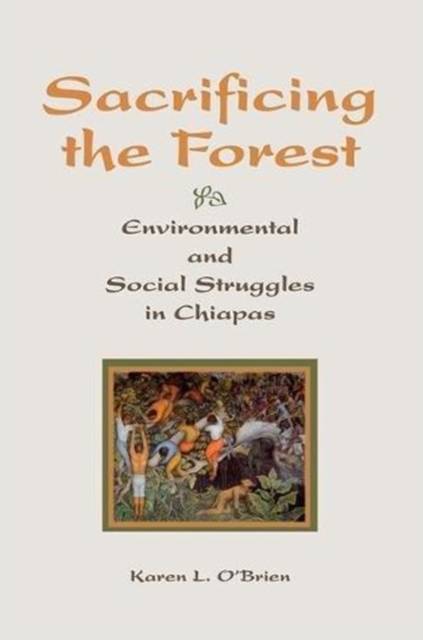
- Afhalen na 1 uur in een winkel met voorraad
- Gratis thuislevering in België vanaf € 30
- Ruim aanbod met 7 miljoen producten
- Afhalen na 1 uur in een winkel met voorraad
- Gratis thuislevering in België vanaf € 30
- Ruim aanbod met 7 miljoen producten
Zoeken
Sacrificing the Forest
Environmental and Social Struggle in Chiapas
Karen O'Brien
Paperback | Engels
€ 79,45
+ 158 punten
Uitvoering
Omschrijving
The Selva Lacandona of Chiapas, Mexico has received a tremendous amount of attention since the Zapatista uprising began in 1994. Concerns have focused on both the rapid rate of deforestation in Mexico's largest tropical rain forest and the social marginalization of its inhabitants, which is considered to be a root cause of the uprising. In this book, Karen O'Brien presents an insightful analysis of how deforestation and social struggles are related in this region and then considers the implications of these links for the remaining forest.A critical analysis of deforestation rates and patterns in the Selva Lacandona region provides the point of departure for this study. Using satellite imagery and her own field work, O'Brien presents an original estimate of forest loss. She then uses an approach derived from political ecology to trace the links between social processes and deforestation. Instead of focusing exclusively on the driving forces of deforestation, she argues that an analysis of the countervailing forces of conservation efforts is crucial to understanding the configuration of the present-day forest and the conflicts that surround it. Unless these forces can be fused, O'Brien contends, the future of the Selva Lacandona will continue to be shaped by the tensions among social, economic, and environmental objectives.A valuable tool for scholars of deforestation, environmental change, and political ecology, Sacrificing the Forest will also be of interest to readers trying to understand the current situation in Chiapas.
Specificaties
Betrokkenen
- Auteur(s):
- Uitgeverij:
Inhoud
- Aantal bladzijden:
- 224
- Taal:
- Engels
Eigenschappen
- Productcode (EAN):
- 9780813338903
- Verschijningsdatum:
- 29/12/2000
- Uitvoering:
- Paperback
- Formaat:
- Trade paperback (VS)
- Afmetingen:
- 152 mm x 229 mm
- Gewicht:
- 340 g

Alleen bij Standaard Boekhandel
+ 158 punten op je klantenkaart van Standaard Boekhandel
Beoordelingen
We publiceren alleen reviews die voldoen aan de voorwaarden voor reviews. Bekijk onze voorwaarden voor reviews.











